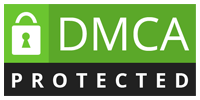A lot of people want to become computer programmers and IT experts, and there is no doubt that computer-related jobs are the coolest on the planet.
But even if it seems that cool, there’s still that one tiny bit of a problem that most programming or IT students face, and that is mathematics.
We know that some of you hate math, and there’s no denying that math is one of the most significant subjects that revolve in computer programming and any IT related courses.
It sucks, but there’s no need for you to worry too much about it. Why? It’s because everything changes once you finish your IT-related course in college.
How? Well, that’s because there are many IT-related jobs or roles that don’t require too much math. Yes, and we’re not kidding! You can become an IT expert without too much math to worry about.
There are ways that you can become an IT expert without much Mathematics to worry about!
Most IT-related tools and courses require Math, but just a little bit. It doesn’t mean that you don’t need math in computer programming because that’ll be impossible.
It means that you have to stop worrying about complex math equations because, in reality, most IT-related work only requires simple mathematical calculations.
The only time that you’ll be worrying about calculus and more-advanced math in IT is when you take on advanced IT tools for programming, but that’s about it.
As you see, Math in IT comes in different ways. Being an IT expert comes from different angles. You can still be an IT expert from a different perspective.
For example, if you know the primary Information Technology subsets or branches, like Cybersecurity and more, you can use that niche in teaching.
You can learn the basics of Cybersecurity and become an expert about it without math, and when you do, you can teach your learnings to people who are new to technology, like an expert!
What we’re trying to say here is that, if you step outside of coding, you will still see that there are a variety of areas in IT that do not require advanced math skills, like Network and server administration, project management, application support, and database administration.
Most of these fields only require simple math, statistics, and business math, which isn’t as hard as learning complex mathematical equations. They can all be done with reasonably necessary math skills, and that’s already a good thing for people who hate math.
You just have to remember that it does not mean that mathematics is not useful. Especially statistics. We wish to say that many, many people have successful jobs and careers without being right in math. Logical thinking and human skills are much more critical in the field of IT.
Also, many programming tasks do not require much programmer math. IT or programming tasks like modeling, simulation, verification and validation, system testing, design, and testing of user interfaces are examples of IT-related work that don’t require too much math.
What’s good about it, though, is that you can still be considered an expert if you are good with the fields mentioned above!
Conclusion
Being an IT expert is a challenge, mainly because of math, but you don’t have to lose hope, because not all IT-related work requires much of it. All you need to possess is good logical reasoning and decision making skills.
It is one of the best assets of a good IT expert in all fields. So, we’re encouraging you to move forward with your goal to become an IT expert, even if you hate math! Learn from this, and you’ll inevitably move to the next level in no time.






